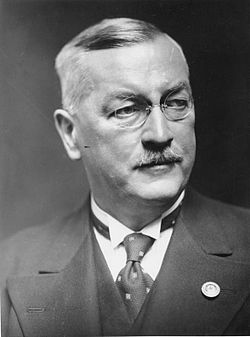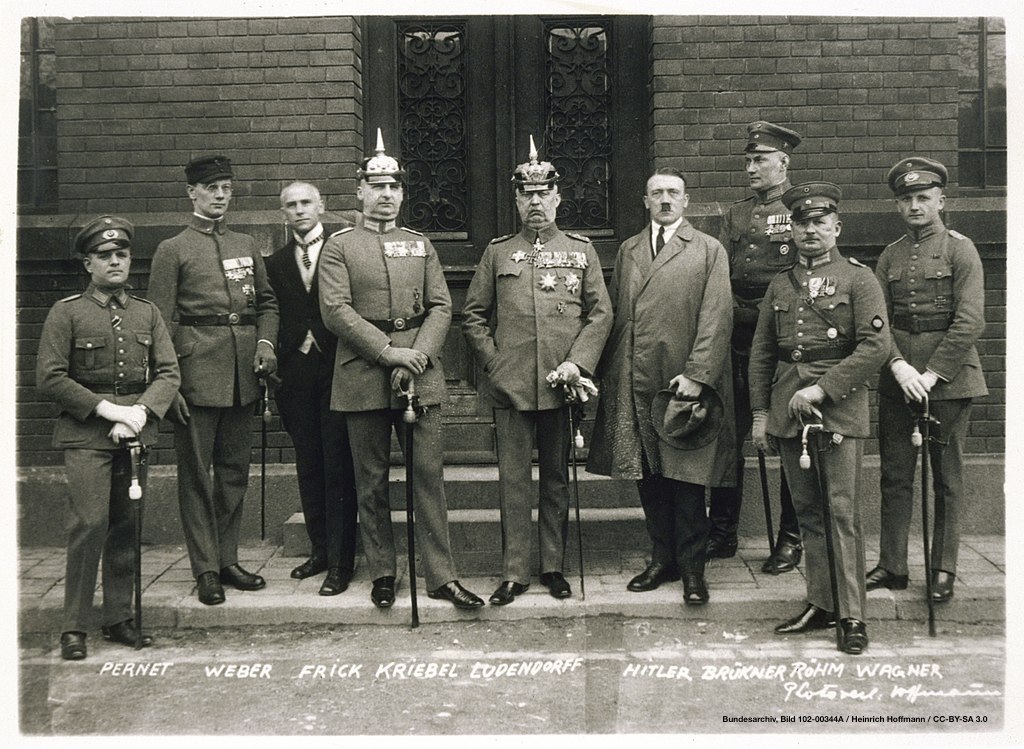
Attempts to answer the great, universal questions can be provided by two disciplines – science and religion. The former produces a list of details on ‘how’, the latter offers theoretical options on ‘why’, in which one can place one’s faith. Or not.
The same can be said about historians and the questions of the Third Reich. The ‘why’ is still both debated and often obscene. But there is a significant and forgotten ‘how’. And its name is Franz Gürtner.
Gürtner enabled Hitler, at several crucial junctures on his road to power, to survive. Without him, Hitler would not have become Hitler.
Hindsight history is full of ‘if only’. If only more back-bone had been shown against Nazi Germany’s risky aggression during the reoccupation of the Rhineland in 1936. If only Stauffenberg’s bomb had killed Hitler in 1944 and so on. Surrounding all these hypotheticals are explanations, provisions of context and mitigating circumstances, even caveats of what futures these events might have produced had the ‘right’ thing been done at the time. All this adds to the merry-go-round of historical debate.
These examples look back and identify alternative courses of action that would have produced a better world. But at the time, there was already a mechanism that could have kept the name Hitler to just a footnote of history. It was the state institution that collates rules to regulate society, behaviour and punishment for the good of the whole: The Law. If it’s clear statutes had been followed in the 1920s, Hitler would have sunk with little trace.
But in those turbulent years of Hitler’s early political career, the law wasn’t obeyed. By 1933 it was too late. Soon after Hitler’s appointment as Chancellor, Germany became a county where the fair rule of law ceased to apply. Swathes of citizens whose choice of political views, or simply their ethnic heritage, clashed with the Nazis views, now fell outside its protection.
The law was now subject to Hitler’s whim. In August 1940, the German Minister for Justice himself said, in response to a local judge objecting to what was simply illegal, government sanctioned mass murder: “If you cannot recognise the will of the Führer as a source of law, then you cannot remain a judge”. This minister’s name was Franz Gürtner, the mass murder the Nazi Euthanasia program that began in September of 1939.
Gürtner was Bavarian civil servant who initially worked in the state’s Justice Ministry. In his early 30s he served with distinction in the German army during WWI. Upon his demobilization, he was absorbed back into the Justice Ministry in Munich. The political aftermath of WWII here was chaotic. His nationalist sympathies saw him become a member of the German National Peoples Party, the DNVP. Revolution in Bavaria in 1919 produced the ‘Republic of the councils’, a short lived left-wing government. This was violently over thrown by an independent army of ‘freikorps’ forces. One of the common soldiers supporting the left-wing regime was in reality a stool pigeon, who betrayed his comrades in the aftermath of the right-wing take over. This soldiers name was Adolf Hitler.
For many like Gürtner and Hitler, WWI didn’t end in 1918/19. The war continued against the young democracy – the Weimar Republic. Brutalised ex-soldiers with nothing to lose perpetrated murder after murder in their struggle against what they saw as the betrayers of Germany. The 1922 drive-by shooting of Foreign Minister Rathenow in a wealthy Berlin suburb perhaps the most well-known of these assassinations. These crimes could not go unpunished. So, in Bavaria, an official was commissioned to investigate the murders, and in a secret protocol told not to solve them. The murderers would go unpunished. This officials name was Franz Gürtner.
Hitler’s role during this chaos was as a local political celebrity, agitator and provocateur of violence. Many times, after Hitler spoke, people died. Often he had been called to account by the Bavarian state wanting to censure him for his law breaking. Hitler would grab second chances by swearing he would stop illegal activities. The dilemma was that Hitler’s party represented views that were broadly shared by the anti-democratic ‘secret army’ of demobilized soldiers now serving in positions of power in Bavaria. It was these same men that had deliberately failed to mete out justice for the political murders they silently supported.
In 1924 they had another important court case to judge in Munich, an event that had left 16 men dead.
In 1923, the traumas of the lost war and inflation was finally subsiding. Foreign financial investment was to produce several ‘good’ years. Hitler, desperate to grab a chance to increase the fear and chaos on which he thrived politically, launched his ill-fated coup d’étatin Munich in November 1923.
It failed, and as the shooting started Hitler was the first to run away. He was arrested. During the trial the prosecution had trouble looking the treasonous defendants in the eye. This is because they knew each other, worked together and supported each other. The result was a lenient sentence for Hitler. Five years. And no deportation from Germany – a fate that would have befallen any other foreigner who had behaved as Hitler had done in the years before.
The name of the man who allowed Hitler to take over the trial with his defence, and whose gavel sealed his light sentence, was Franz Gürtner.

Nine months later, Hitler was released. Whilst in prison he had become forgotten by most of his colleagues, and his movement had disintegrated. The Nazi party had been outlawed and Hitler had been banned from public speaking. But by 1926 both these bans too had been lifted. Working behind the scenes to lift both of these prohibitions, successfully, was Bavarian Justice Minister, Franz Gürtner.
By 1932 both Gürtner’s and Hitler’s stars had risen. Gürtner was now national Minister for Justice, a positon he retained when Hitler became chancellor in January 1933. He was instrumental in creating the sweeping laws for dictatorial power after the Reichstag fire, and in 1935 the infamous racial/legal code known as the Nuremberg laws. Though he did eventually attempt to mitigate against the most embarrassing and obvious Nazi perversions of law, he served in his position until his death in 1941.
Gürtner and many others believed that Germany could alleviate the shame of defeat in 1918 and reassert its destiny as a world power by ridding itself of ‘weak’ democracy and replacing it with a strong dictatorship to correct the national course. To achieve this quickly they were prepared that the law, something they had studied and represented, might have to be bent in the short term.
Alas, it was this deal that Gürtner and millions of other Germans were prepared to accept to assuage their adolescent rage at the realities resulting from national hubris and stupidity before and after WWI. Even though Gürtner died before witnessing the full harvest of what he had helped sow, he must have realized that the bargain had turned sour. WWII itself was part of this deal. It was during this phase that Gürtner’s actions led to his country and huge swathes of the world being turned into a charred hell-scape, where millions died.
Gürtner and others were familiar, I’m sure, with the work of enlightenment philosopher John Locke. He wrote: ‘Wherever law ends, Tyranny begins’. Men like Gürtners willingness, particularly those that represented the law and the Justice Ministry of the German government, to ‘work towards the Fuhrer’ after 1933, bear a special responsibility for the horrors that they went out of their way to enable.
No Hitler – no Holocaust.
No Gürtner – No Hitler.
